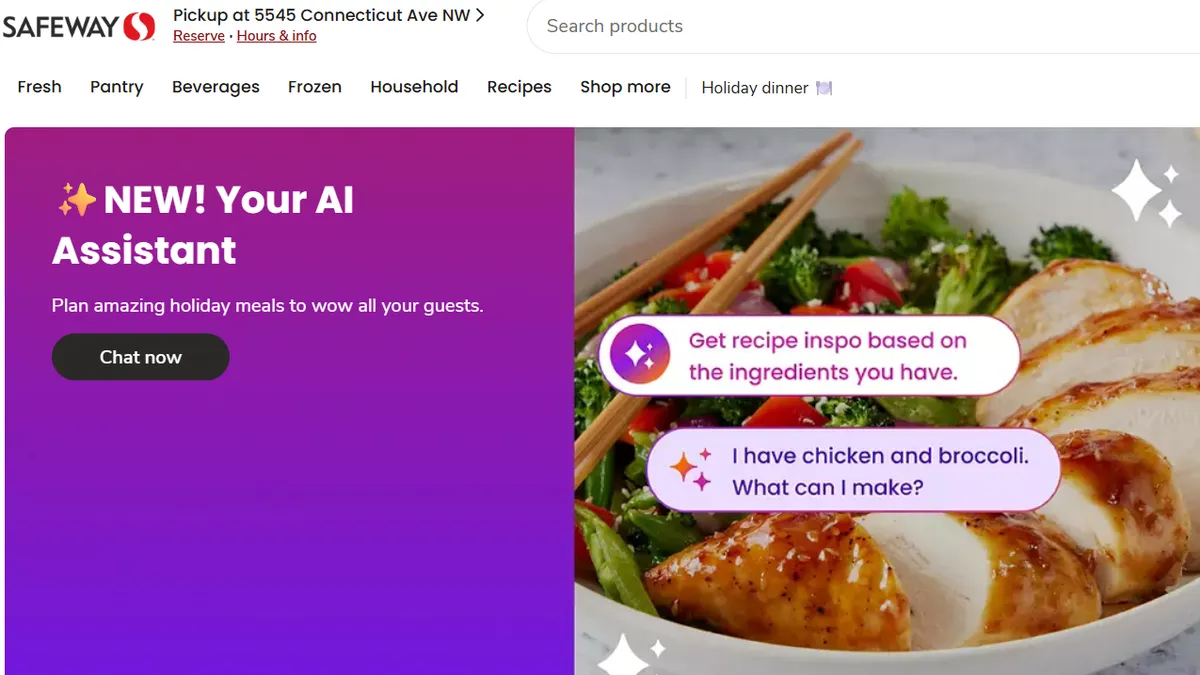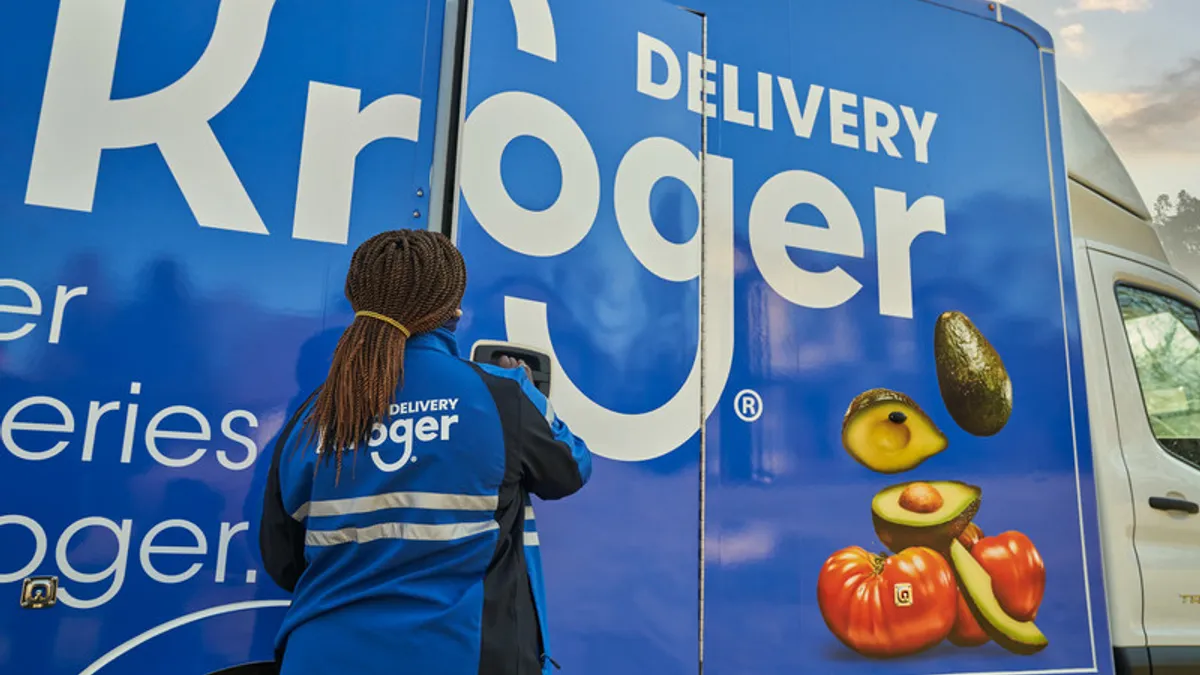What does retirement look like for lifelong retail managers? Some might take up a hobby like woodworking or painting. Others might revel in the extra hours to play golf and spend time with grandchildren.
For Mike Billings, retirement looked pretty leisurely. After more than 40 years in the grocery business, including 25 years running the meat and seafood department at BJ’s Wholesale Club, he thought he had reached the end of a long and satisfying career. He would split time between his home west of Boston and another in Martha’s Vineyard, where he grew up. He’d kick around on the beach and spend a few hours each day trading stocks. It was an ideal life for a lot of people.
But Billings missed the fast-paced environment at BJ’s, where his days were jam-packed. There was always a problem that needed fixing and costly decisions that needed to be made. For many, that sort of pace would be incredibly stressful and some might run toward a quiet retirement as quickly as they could.
Billings thrived in it.
"People don’t realize it about that business, but it moves fast. Things are always changing," he told Grocery Dive. "There’s always something to fix. When you get pulled out of that all at once it’s like, 'oof, man did I just slow down.'"
A year into his retirement, in 2016, Billings got a LinkedIn message: "Interesting background — need to talk."
The message came from Mike Salguero, who one year earlier had started ButcherBox, an online meat purveyor that sells premium grass-fed beef via a monthly subscription model. Salguero, who got the business off the ground with a Kickstarter campaign, was handling the meat buying himself, and wasn’t doing a very good job at it.
"We didn’t really know what we were doing," he told Grocery Dive. "We had never really bought meat before."
Salguero could have hired someone with a business degree fresh out of college to join his small team, or even picked up a retail veteran with a decade of experience or more. But he had a theory: Get the most experienced meat hand he could, and that person would more than pay for their salary with the savings they wrung out of the system.
Over a lunch of fried chicken sandwiches at Shake Shack, Salguero made his pitch to Billings. A week later, the former BJ’s executive officially came out of retirement and went to work for the tiny online startup.
One tough negotiator
Billings grew up in the meat business. His grandfather owned a turkey farm on Martha’s Vineyard, where a young Mike would often spend days while both his parents worked. It was tough work — shoveling out waste, feeding the birds and washing out their housing. But he enjoyed contributing to the business, and he liked spending time with his grandparents.
At age 16, he took his first job cutting meat at the local grocery store, and he worked his way through college in the meat department at a Stop & Shop in Boston. He graduated from Boston State College — now the University of Massachusetts — with a degree in medical technology, but found he could make more money doing what he’d always done. He took a job cutting meat at Purity Supreme, a grocery chain that Stop & Shop acquired in the mid '90s, and pretty soon vaulted to meat manager and then head of the chain’s deli operations.
In 1985, Billings got his first taste of building a business from the ground up. High-end Boston grocer J. Bildner & Sons hired him to run its meat and seafood department. Billings helped the company rocket from a single store in Boston to 32 locations, including expansion in the South and Midwest. But while the chain was heralded by food writers, it borrowed heavily, grew too quickly and filed for bankruptcy three years after Billings started.
Billings would get in on the ground level of another business less than two years later — and this one ended up faring much better.
BJ’s Wholesale Club is now a public company with more than 200 locations and $130 million in yearly sales. When the chain picked Billings to head up its brand new meat and bakery operation back in 1988, it had just 16 clubs. For nine months after taking the job, he traveled around to each store getting the departments off the ground, doing everything from hiring meat cutters to making sure all the electrical outlets were in the right spots.
"I lived out of two suitcases that whole time," Billings said. "We went from Medford, Rhode Island, to Virginia Beach and Florida — up and down the whole East Coast, basically."
Over the next 25 years, Billings helped build out a lot more departments as the head of meat and seafood procurement. He honed the category’s processes until it ran like clockwork, eventually overseeing a team of buyers. He became a well-connected, deeply respected name in the industry, taking leadership roles with industry organizations like the North American Meat Institute.
With ButcherBox, he was back to square one, hustling to build an operation just as he did when he was fresh out of college. The challenge energized him, though, and he saw a real opportunity for success. At BJ’s, Billings had built out a large assortment of antibiotic-free meats, including some of the first lines introduced to mass retail. He understood the appeal of all-natural.
"[Salguero] didn’t have to convince me too hard," he said.
After accepting the role, Billings set to work making things right. He quickly saw just how badly ButcherBox needed him.
"They had zero systems, no inventory control," he said. "There was nothing."
Salguero agreed, noting Billings was immediately able to slash the prices they were paying for chicken by more than half.
"We realized we were getting our a-- handed to us on pricing," said Salguero. "But Mike is a really tough negotiator."
Billings also introduced a savings mentality to ButcherBox, showing the company how to squeeze "a penny here, a nickel there" out of its supply chain, according to Salguero. Those savings added up to significant capital over time, which ButcherBox was able to then invest in other parts of the business. The company now offers beef, pork, chicken and salmon to customers and ships throughout the continental U.S.
When Salguero accompanied Billings to a meat conference, he was struck by how many people knew the former BJ’s manager. A near-constant stream of people seemed to be coming up, shaking Billings’ hand and talking shop with him. Salguero and his team came up with a nickname for Billings at the event: "The Mayor of Meatville."
The generational gap
Even though Billings’ deep well of industry knowledge benefited ButcherBox, he still had a lot to learn. At BJ’s, he procured meat by calling up his Cargill or Tyson representative. At ButcherBox, he had to go out to visit with farmers and ranchers and convince them to work with the company.
"You have to build the supply chain because it doesn’t exist," Billings said.
The challenges of finding grass-fed operations that could supply all or most of the year was steep. There were resource questions. Should he spend more money to expand with an existing supplier or find a new one? It was also difficult convincing farmers to transition their animals to pasture-raised methods after so many years spent under a different system.
"I’ve got my hands around that now, but it was a real learning curve," Billings said.
He had a lot to learn about data science and online retailing. At BJ’s, the only product he sold online was a prime beef gift box ("and we didn’t really pay any attention to it," Billings said). Where his previous jobs relied on coupons and newspaper advertising to bring shoppers in, ButcherBox — like many other digitally native brands — uses targeted promotions and tracks its customers and potential customers at a granular level.
“They had zero systems, no inventory control. There was nothing.”

Mike Billings
Director of procurement, ButcherBox
Learning analytics has been enlightening for an old-school meat buyer, said Billings. Learning to navigate an office full of young startup employees has proven to be eye-opening, as well. Billings didn’t point to any specific problems, but indicated the environment challenged the top-down authority he was used to having at BJ’s.
"I was always the only go-to guy. Nobody did anything in meat at BJ’s without contacting me. Here it was a little more…" he noted, declining to say more.
For all the gains of data science, Billings said there are still advantages to his way of doing business. He prioritizes personal contact, building relationships and staking out a reputation as someone who’s tough but fair, and who always keeps his word. Younger employees, he said, might prefer to email or text a vendor rather than calling them up.
"I’m not like that," Billings said. "If I’ve got a problem and I’ve got to write more than 10 lines, I’m picking up the phone and calling you because I might be able to talk for three minutes and solve the whole problem rather than taking 20 and going back and forth."
The generational gap points to a broader problem at ButcherBox and throughout the industry: Mike Billings is one of a dying breed.
Department staffing has been a problem for years, said Anne-Marie Roerink, principal and founder of 210 Analytics, who closely follows the industry and writes reports on behalf of the Food Marketing Institute, including the annual "Power of Meat." According to a survey last year by her firm, 89% of retailers say they’re struggling to find individuals willing to make a career in meat.
"The meat department has struggled for years to find replacements for their aging workforce, whether in-store butchers or corporate-level directors and VPs," Roerink wrote in an email to Grocery Dive. "A quick search on any of the nationwide job boards shows hundreds of vacancies for meat department VPs, directors, managers, cutters or clerks at retailers of all sizes, formats and regions."
That could be a serious problem for the $67 billion industry. Billings said it troubles him, and it points to a future that includes fewer full-service meat cases. Despite having a high need for customer service, he said, retailers will rely more and more on case-ready meats.
At ButcherBox, Salguero wants Billings to have a successor who will absorb all his valuable industry knowledge. Right now there’s a support staff in place, but no one has emerged who’s passionate about the business.
"We haven’t really found somebody who’s like, 'I want to be in meat for the rest of my life because it’s such a great career,'" Salguero said.
ButcherBox’s operations could suffer when Billings decides to finally retire again. But Salguero and company can breathe easy — at least for now — because the wily veteran says he has no plans to step away any time soon. He works four days a week and only comes into the office one of those days. He's also having fun making new connections and adding new lines, like fully traceable wild-caught sea scallops.
"I don’t have a cutoff," Billings said. "I really, really like what I do, so there’s nothing in the job that would make me leave. It’s more about, when do I want to do nothing?"


















